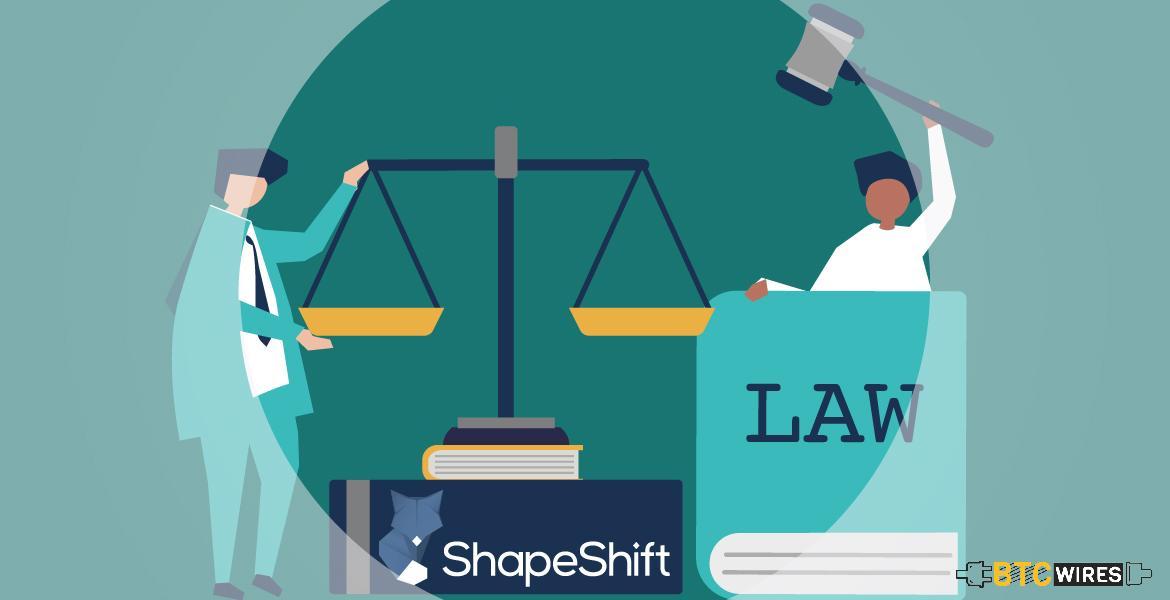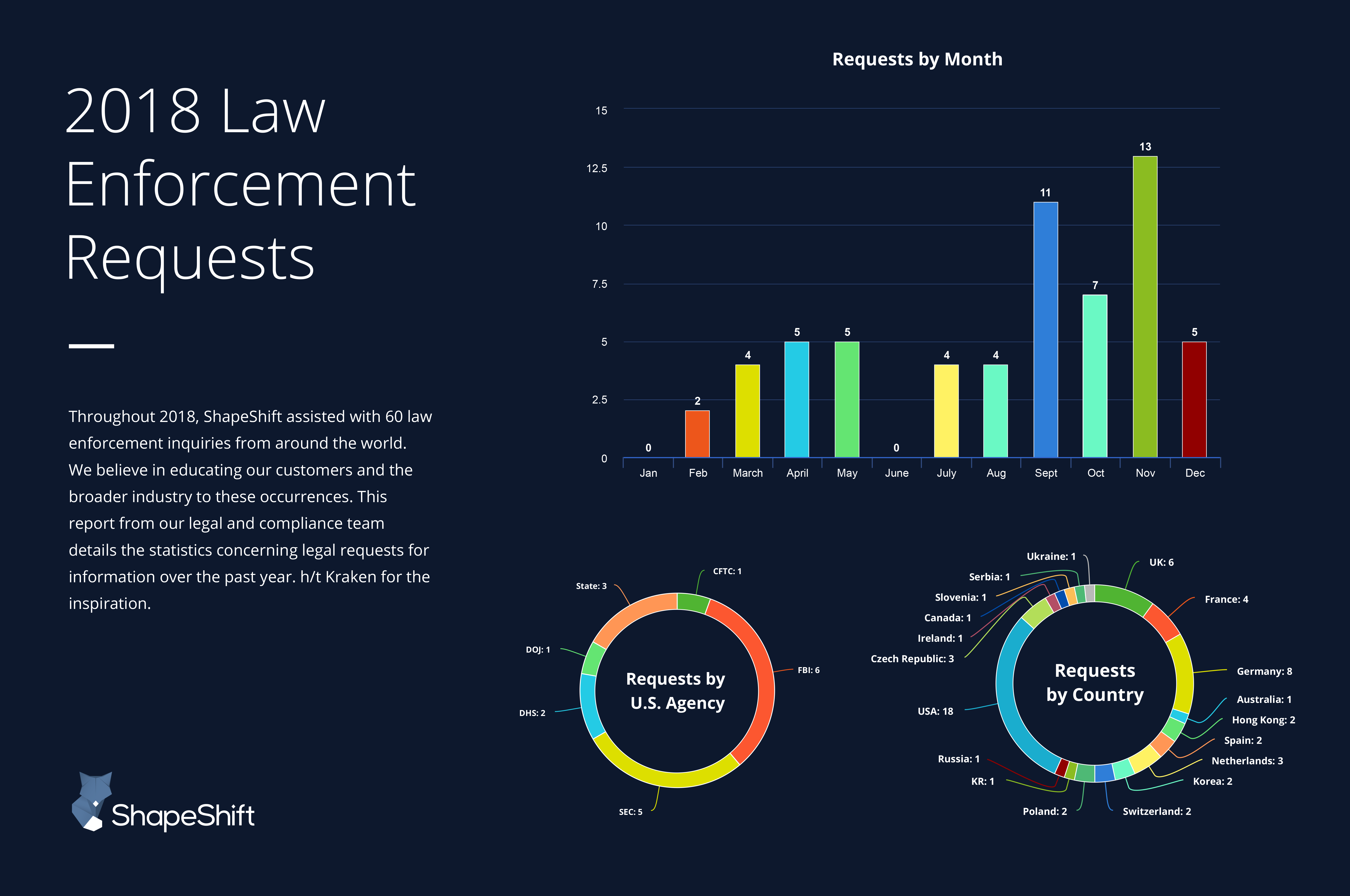Cryptocurrency exchange platform ShapeShift recently published a report, revealing that

Cryptocurrency exchange platform ShapeShift recently published a report, revealing that it had received 60 law enforcement inquiries from around the world, showing just how countries and regulators across the world are trying their best to understand and protect the interests of both buyers and sellers in this new market.
ShapeShift published the report “Pulling Back The Curtain: How ShapeShift Handles Law Enforcement Compliance” on its blog on Friday, January 18. The report starts on an optimistic note, explaining that the company is proactively taking steps to make the law enforcement enquiries more transparent in nature because, at present, the process is “typically opaque.”
The company provided an interesting data representation of the law enforcement requests, detailing them by month, by agencies and by countries.

Image Source: ShapeShift.io
The chart is packed with data, which the report goes on to explain in further detail.
Starting with the requests coming out of the United States, most of which are subpoenas from a court or a federal or state agency, however, the report clarified that countries have different legal procedures, this being the case for the US.
The report then goes on to describe receiving subpoenas on a lighter note:
“If most of your knowledge of the legal system comes from watching Law and Order, the thought of being subpoenaed can seem terrifying. However, for heavily regulated industries, like finance, getting subpoena requests happen often. In fact, in relation to how many inquiries law enforcement sends annually, requests related to cryptocurrency transactions are minuscule.”
Subpoenas are, simply stated, court orders that compel instead of requesting a person or a company to take some sort of action regarding the activity they had been subpoenaed for. In the US, there are generally two kinds of subpoenas, The first kind requires testimony before the court or legal authority. The second type is a request for documents, materials or other types of evidence (these are the types of subpoenas that ShapeShift regularly receives).
The other graphs break down the data in other ways. The first graph in the report, broken down by the number of inquiries per month shows that there was an upswing in requests in the last few months of 2018, especially November. This mirrors what other cryptocurrency companies had faced during the same time period, which BTCWires has reported extensively upon.
The next way is by showing requests by the country of origin, where the report remarks that it “comes as no surprise” that the US had the largest share of the pie. The third and final graph details the different agencies from inside the US that made the requests to ShapeShift throughout the year.
The report concludes by saying that it is not atypical for a cryptocurrency company to come under scrutiny, due to the industry’s young age and the lack of regulation.
“Requests of this type, especially in the cryptocurrency industry, are common, and based on our number of transactions and user volumes, this seems to be pretty typical. When asked by CNBC about a subpoena his cryptofund received in 2018, TechCrunch Founder Michael Arrington stated, “We received a subpoena. Every [crypto]fund I’ve talked to has received one…”
